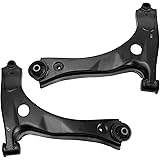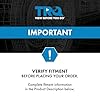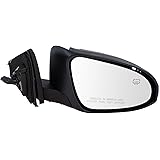Table of Contents
Leasing a car can seem like an impossible dream when you have bad credit, but don’t worry, it’s more attainable than you might think. While a low credit score certainly presents challenges, understanding the landscape of bad credit car leasing and knowing your options can significantly improve your chances of driving away in a new car. This guide will navigate you through the intricacies of leasing with bad credit, offering insights and strategies to help you get approved and manage your lease effectively.
Understanding Bad Credit and Car Leasing
What is Considered Bad Credit?
Defining what constitutes “bad credit” is crucial before exploring car lease options. Credit scores typically range from 300 to 850, and a score below a certain threshold is generally considered bad. While the exact minimum credit score varies among lenders and dealerships, scores below 600 are typically viewed as poor credit. This signifies a higher risk to lenders, as individuals with lower scores have a higher chance of defaulting on their monthly payments, affecting their ability to get a lease. Factors contributing to a low credit score can include missed payments, high credit card balances, or a limited credit history, all of which affect your ability to lease a car with bad credit and build credit.
The Impact of Bad Credit on Car Leasing
Having a poor credit score can significantly impact your ability to lease a new car. Dealerships and leasing companies use your credit report to assess your creditworthiness and determine the lease offer they provide. With bad credit, you might face several challenges, including higher interest rates, which translate to larger monthly payments. You may also be required to make a larger down payment to offset the perceived risk and build credit for future purchases.. Furthermore, the selection of vehicles available for lease may be limited. The credit score needed to lease often dictates the terms of the lease contract, and a low score may result in unfavorable conditions.
Why It’s Easier to Lease a Car with Bad Credit
Despite the challenges, it is often easier to lease a car with bad credit than to secure auto loans to buy a car. This is because leasing is based on the depreciation of the vehicle during the lease term, rather than the total value of the car. This lower financial commitment can make dealerships more willing to work with individuals who have a low credit score and help in getting approved for a lease. Additionally, some dealerships specialize in bad credit car leasing, offering options tailored to individuals with less-than-perfect credit history. It is also worth exploring the possibility of a lease transfer or considering a used car lease, as these options may present more favorable terms for those with poor credit.
Getting Approved for a Car Lease with Bad Credit
Steps to Improve Your Credit Score
Before attempting to lease a car with bad credit, taking proactive steps to improve your credit score can significantly increase your chances of getting approved for a lease and securing more favorable terms. Review your credit report for errors and dispute any inaccuracies, as correcting mistakes can quickly boost your score. Paying down existing debts, especially high-interest credit card balances, can also help you improve your credit score. Establishing a positive credit history through on-time monthly payments on all your accounts is crucial, and even small changes can make a difference when you lease a car with bad credit.
Finding Lenders Who Accept Bad Credit
Not all dealerships or leasing companies are willing to work with individuals who have poor credit. Research lenders who specialize in bad credit car leasing to increase your chances of getting approved. These lenders understand the challenges faced by those with a low credit score and are more likely to offer lease options tailored to your situation. Consider exploring local dealerships known for working with bad credit customers, as well as online platforms that connect borrowers with suitable lenders. Finding the right lender can make all the difference when you lease a new car despite a less-than-perfect credit history.
Documents Needed for Lease Approval
When applying to lease a car with bad credit, gathering all the necessary documentation beforehand can streamline the approval process. Typically, you’ll need to provide proof of income, such as pay stubs or bank statements, to demonstrate your ability to make the monthly payments. A valid driver’s license and auto insurance information are also essential. Be prepared to provide your social security number for a credit check, which is often needed to lease a car. Having these documents readily available can expedite the application and help you get approved for a car lease, even with a poor credit history. A larger down payment may also be required.
Choosing the Right Car Lease
Types of Cars Available for Lease
When you lease a car with bad credit, your options for the type of vehicle available might be somewhat limited, but there are still choices to consider. While high-end luxury vehicles might be out of reach, many dealerships offer a range of practical and reliable cars that are suitable for leasing. Consider your transportation needs and budget when selecting a car from a dealership. A used car might be easier to lease and get approved for. Focusing on fuel-efficient models or those with lower insurance costs can help manage your overall expenses during the lease term. Remember, the goal is to secure a dependable car that fits your needs without straining your finances while building credit.
Understanding Lease Payments and Terms
Before signing any lease agreement, thoroughly understand all aspects of the lease payments and terms. Pay close attention to the monthly payments, including any associated fees, taxes, and interest rate. Know the length of the lease contract, as well as any penalties for early termination or exceeding the mileage allowance. Ask about the residual value of the car at the end of the lease, as this affects your options for buying the car outright. Knowing all the details of the lease agreement ensures you’re fully aware of your financial obligations and can make informed decisions about your car lease.
Negotiating a Lower Lease Payment
Even with bad credit, there are strategies you can use to negotiate a lower lease payment. Offering a larger down payment can reduce the monthly payments by lowering the amount financed. Research the car’s market value to ensure you’re getting a fair lease offer. If you have a trade-in vehicle, its value can be applied toward the lease. Compare lease offers from multiple dealerships to leverage competitive pricing. Negotiating the terms of the lease can help you improve your chances of securing a more affordable monthly lease payment, even when you lease a car with bad credit. Enlisting the help of a co-signer with good credit scores may also improve your offer for a new car with bad credit.
Alternatives to Leasing with Bad Credit
Buying a Car with Bad Credit
While leasing a car with bad credit might seem more accessible, buying a car with bad credit is also an option, although it often involves higher interest rates and stricter terms. Securing auto loans with a low credit score requires careful consideration and comparison of offers from various lenders. Consider exploring options like credit unions and online lenders, which may be more willing to work with individuals with poor credit history than traditional banks. While the monthly payments may be higher initially, owning the vehicle outright after the loan term can be a significant advantage. Building equity in a car can be a step toward improving your overall financial situation, which may help you improve your credit score in the long run.
Considerations for Financing Options
When evaluating financing options for a new car with bad credit, several factors come into play. The interest rate will significantly impact the total cost of the loan, so compare offers carefully. Consider the loan term, as a longer term reduces monthly payments but increases the total interest paid. A larger down payment can reduce the loan amount and potentially lower the interest rate. Be wary of predatory lenders offering extremely high interest rates or unfavorable terms, especially if you are trying to get a lease. Reading the fine print of the lease agreement and understanding all associated fees is crucial to avoid financial pitfalls. Remember, the goal is to find a financing solution that fits your budget and helps you get approved without exacerbating your financial situation. This might entail finding a cosigner with good credit.
Potential Risks of Leasing vs. Buying
Both leasing and buying a car with bad credit come with potential risks. Leasing typically involves mileage restrictions and penalties for excessive wear and tear, which can lead to unexpected costs at the end of the lease term, particularly for customers with bad credit. Buying a car with a high-interest loan can result in significant depreciation and the risk of owing more than the car is worth, especially for those with a minimum credit score needed. Defaulting on either a lease or a loan can severely damage your credit score, making it harder to secure financing in the future. Carefully assess your financial situation and driving habits to determine whether leasing or buying is the better option for you. If you’re unsure, seek advice from a financial advisor to help you make an informed decision, so that you can lease a car with bad credit, or buy a car.
Is It Easier To Lease A Car With Bad Credit?
The question of whether it is easier to lease a car with bad credit compared to buying one with auto loans is complex. Leasing often requires a smaller initial investment and may have lower monthly payments, making it seem more accessible to those with poor credit. Dealerships may be more willing to lease a car with bad credit because the financial risk is tied to the car’s depreciation, not its full value. However, leasing comes with its own set of restrictions and potential costs. Ultimately, the best option depends on your individual circumstances, financial goals, and driving habits. Exploring all available options and carefully comparing the terms and conditions is crucial for making an informed decision. Remember, if you can improve your credit score before applying for a car lease, you’ll have a wider range of options available to you.
Ways to help improve your credit scores
Before seeking to lease a car with bad credit, individuals should prioritize efforts to improve their credit score. A higher credit score not only increases the chances of approval for a car lease but also unlocks access to more favorable lease terms, potentially resulting in lower monthly payments and interest rates. One of the most effective steps to improve your credit is to diligently review your credit report for any inaccuracies or discrepancies. Disputing and correcting errors can lead to an immediate boost in your credit score. Additionally, paying down existing debts, especially those with high-interest rates, demonstrates responsible financial behavior to lenders. Consistently making on-time monthly payments on all credit accounts, including credit cards, loans, and utilities, is crucial for building a positive credit history and steadily improving your credit score. A co-signer with good credit might also help.
Tips To Get Lower Lease Payments With Bad Credit
Even with a low credit score, several strategies can be employed to lower lease payments when you lease a car with bad credit. One effective approach is to offer a larger down payment. This reduces the amount financed and, consequently, the monthly payments for customers with bad credit. Negotiating the terms of the lease agreement is another crucial step. Researching the car’s market value and comparing lease offers from different dealerships to leverage competitive pricing. If you have a trade-in vehicle, its value can be applied toward the lease, further reducing the amount financed. Moreover, consider opting for a less expensive car model or trim level to minimize the monthly payments. Improving your credit score, even incrementally, before applying for the car lease can also lead to better lease terms. Enlisting a co-signer with good credit may also improve your lease offer and lower the overall cost of the lease.
How to improve your chance of lease approval
To maximize the chances of lease approval when you lease with bad credit, several key factors should be addressed. Firstly, ensure that your credit report is accurate and free of errors by regularly reviewing it and disputing any discrepancies. Secondly, aim to improve your credit score by paying down outstanding debts, making timely monthly payments, and avoiding new credit applications in the months leading up to your lease application. Demonstrating stable employment and a steady income stream is also crucial, as lenders want assurance of your ability to make the monthly payments. Providing a larger down payment can also significantly improve your chances of approval. Furthermore, consider seeking a co-signer with good credit, as their creditworthiness can provide added security to the lender. Thoroughly research dealerships and leasing companies known for working with individuals with poor credit to increase your odds of success. By addressing these factors proactively, you can significantly enhance your likelihood of getting approved for a car lease, even with a less-than-perfect credit history.
How To Get Approved For Bad Credit Car Leasing
Securing approval for bad credit car leasing requires a strategic approach that addresses the concerns of lenders. Begin by thoroughly assessing your credit report and addressing any inaccuracies or errors that may be negatively impacting your credit score to build credit. Taking steps to improve your credit score, such as paying down debt and making timely payments, can significantly enhance your chances of approval. When applying for a car lease, be prepared to provide comprehensive documentation, including proof of income, employment history, and residency. Demonstrating a stable financial situation can reassure lenders of your ability to meet your monthly payments. Consider offering a larger down payment to reduce the amount financed and demonstrate your commitment to the lease agreement. Explore options for securing a co-signer with good credit, as their creditworthiness can provide added security to the lender. Finally, research dealerships and leasing companies that specialize in working with individuals with bad credit, as they may offer more flexible lease terms and financing options, so that you can lease a car with bad credit and a monthly lease payment that is reasonable.
























































